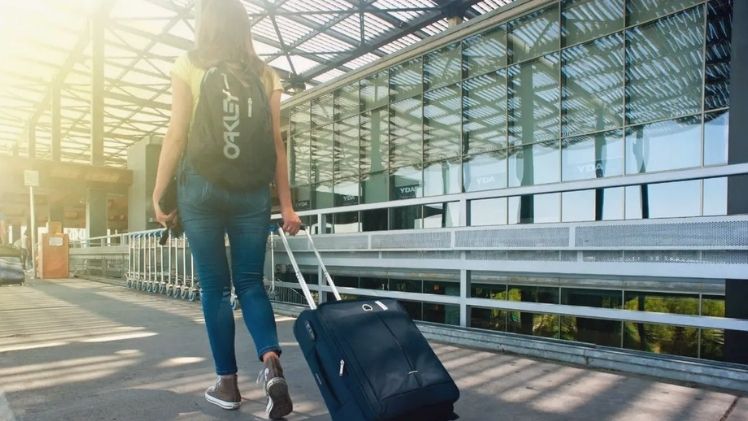Vietnam is a popular tourism destination because of its stunning scenery, fascinating history, and lively culture. From the bustling streets of Hanoi to the serene waters of Ha Long Bay, this Southeast Asian gem offers countless adventures. However, planning is necessary to guarantee a journey that is both safe and healthy. The Centers for Disease Control and Prevention (CDC Travel Vietnam) provides vital travel guidelines to help you navigate potential health risks. This blog will equip you with the essential tips, from recommended vaccinations to safety precautions, ensuring your journey to Vietnam is unforgettable and worry-free.
Overview of CDC Travel Guidelines for Vietnam
The CDC’s travel recommendations focus on safeguarding your health by addressing vaccinations, preventive measures, and potential health risks specific to Vietnam. The secret to a safe travel is being knowledgeable and organized.
Recommended Vaccinations for Vietnam Travel
Before traveling to Vietnam, ensure routine vaccinations like MMR, tetanus, and influenza are current. Additionally, the CDC advises:
- Hepatitis A and B: Essential due to risks from food, water, and close contact.
- Typhoid: Recommended for travelers planning to explore rural areas or consume local street food.
- Japanese Encephalitis: Important for extended stays or rural travel during mosquito-active seasons.
- Rabies: Necessary for travelers who might interact with animals or spend significant time outdoors.
Mosquito-Borne Illnesses and Protection in Vietnam
Vietnam is home to diseases like dengue fever, malaria, and Zika virus, especially in rural and tropical regions. Protect yourself by:
- Using insect repellents containing DEET or picaridin.
- Wearing long-sleeved shirts and pants in mosquito-prone areas.
- Staying in accommodations with screens or air conditioning.
- Considering antimalarial medications if traveling to high-risk zones.
Food and Water Safety in Vietnam
Vietnam is famous for its street food, but taking precautions can help prevent foodborne illnesses:
- Steer clear of tap water and ice cubes and only drink bottled or boiling water.
- Eat hot, freshly cooked meals from clean establishments.
- Avoid raw or undercooked dishes, particularly seafood and meat.
COVID-19 Travel Requirements for Vietnam
As of the latest updates, travelers should check Vietnam’s COVID-19 entry requirements. These may include vaccination certificates, negative test results, or health declarations. Before you leave, make sure you are aware of the most recent regulations.
Essential Travel Insurance for Vietnam
Comprehensive travel insurance is vital for covering unexpected medical expenses, trip cancellations, or adventure activity mishaps. Confirm that your insurance policy includes emergency evacuation coverage.
Navigating Vietnam’s Healthcare System
Vietnam offers quality healthcare in major cities like Hanoi and Ho Chi Minh City, but rural areas may lack advanced facilities. Tips for accessing care include:
- Researching nearby hospitals and clinics in advance.
- Carrying basic medical supplies, including a first-aid kit.
- Learning a few Vietnamese phrases to assist in medical situations.
Health Risks by Region in Vietnam
Each region in Vietnam presents unique health risks:
- Northern Highlands: Higher risk of malaria and cold weather-related illnesses.
- Central Coast: Sunburn and dehydration are common.
- Southern Mekong Delta: Beware of mosquito-borne illnesses like dengue and malaria.
Staying Safe While Exploring Vietnam
While Vietnam is generally safe, travelers should take precautions:
- Keep valuables secure to prevent theft.
- Be cautious when crossing streets, especially in cities with heavy traffic.
- Use reputable transportation services and avoid unlicensed taxis or motorbikes.
Stay Updated with CDC Alerts and Travel Resources
Regularly check the CDC’s travel website for updates on health alerts and advisories for Vietnam. Additional resources like the U.S. Department of State’s travel page can provide safety tips and emergency contact information.
Conclusion
Vietnam offers a blend of natural beauty, cultural richness, and unforgettable experiences. By following CDC travel guidelines, staying updated on vaccinations, and taking preventive measures, you can ensure a safe and healthy journey. From exploring ancient temples to enjoying Vietnamese cuisine, your trip to Vietnam will be as memorable as it is worry-free. The secret to enjoying everything this amazing place has to offer is awareness and preparation.
FAQs about CDC Travel Vietnam
Which vaccinations are required before visiting Vietnam?
The CDC recommends routine vaccinations like MMR and tetanus, along with specific vaccines such as hepatitis A, typhoid, and Japanese encephalitis based on your travel plans.
Are mosquito-borne illnesses a concern in Vietnam?
Yes, diseases like dengue fever, malaria, and Zika virus are present in Vietnam. Use insect repellents, wear protective clothing, and consider antimalarial medications for high-risk areas.
Is Vietnam safe for travelers during the COVID-19 pandemic?
Travelers should check Vietnam’s COVID-19 entry requirements, which may include proof of vaccination, negative test results, or health declarations. Stay updated on current regulations.
Can I drink tap water in Vietnam?
No, it’s best to avoid tap water in Vietnam. Stick to bottled or boiled water and be cautious with ice or beverages made from untreated water.
How reliable is Vietnam’s healthcare system for tourists?
Vietnam’s healthcare is reliable in major cities but may be limited in rural areas. Travel insurance is essential, and it’s advisable to carry a basic first-aid kit.
This guide equips you with the knowledge and resources needed to prepare for a safe and healthy adventure in Vietnam. With the right precautions, your journey to this captivating country will be one to remember.

